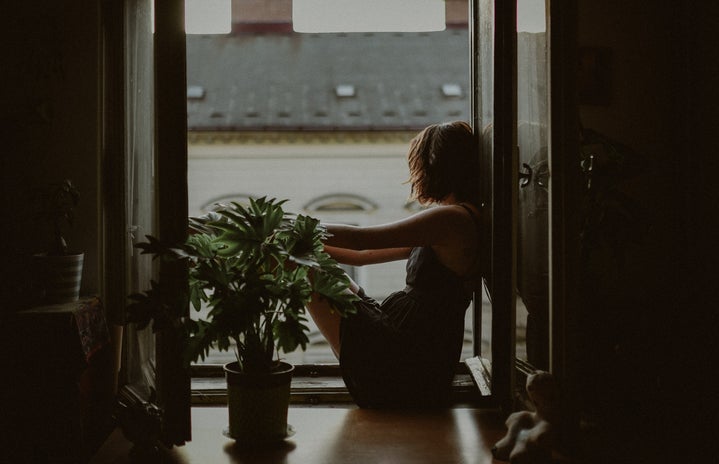During quarantine, I subscribed to an email chain that shares daily writing prompts. I genuinely thought that I would start writing every day. Instead, I sat on my back porch attempting to tan while watching all the newest Tik Tok trends.
Recently, I read through my emails and found that some of these daily writing prompts were actually really deep and insightful. The one that stood out the most for me was written by Maggie Rogers. For those of you who don’t know who Maggie Rogers is, I’ll explain her in three words; a lyrical god.
I have looked up to Maggie ever since she released her album Heard It In A Past Life in 2019. Her lyrics are relatable, but complex to the point that I had to listen to the album multiple times to finally figure out her main messages. The perfect way to describe Maggie’s music is vulnerable – Maggie has actually said this herself. In one of the emails, Maggie says,
“As a songwriter, I’ve found vulnerability to be a source of real power. It’s at the core of how I’ve defined the greatest songwriting—songs that have the ability to take one person’s experience and make it universal, songs that can clearly and simply express one’s feelings, needs, and desires.”
Maggie then explains how she, “was the kid in the second grade telling everyone who [she] had a crush on instead of trying to keep it a secret” because if everyone knew how she was feeling, they couldn’t use it against her. Even as a second grader, Maggie understood that owning your truth holds a sense of peacefulness. I wish I knew this earlier.
Her prompt was, “In your deepest core, in your most vulnerable moments—what do you want?” The question ‘what do you want’ can be difficult to answer, especially if you aren’t used to expressing your wants. Being vulnerable is also challenging, especially if you have been trained to suppress your feelings. Despite various guarded inclinations to avoid emotions, I believe that everyone has the potential to be more vulnerable.
So what does it mean to be vulnerable? It doesn’t mean you have to open up to every single person you meet and share your deepest darkest secrets. It means that you have to be honest about your feelings in the moment. In a relationship, vulnerability is a key factor in growing deeper connections. Being open and understanding about your partner’s thoughts and wants is a goal that every couple should strive for. Being vulnerable with friends and family can also create deeper connections. Being honest with others is a respectable quality and it feels better to be honest rather than lie.
It wasn’t until lately when I realized the power and positive effects of owning my truth and being honest with myself. I also realized that there is a time and place to be vulnerable. Make sure you’re being vulnerable with the right people who you trust and encourage vulnerability as a superpower, rather than a weakness. It’s better to surround yourself with peers who think being vulnerable and emotional is natural, instead of a way to gain sympathy.
So, to answer Maggie’s question, ‘what do you want?’ I want to be able to be my true self, be able to cry without feeling sorry, and I want to be open so that it can inspire others to share their truth.
Vulnerability does not equal weakness, rather, you are strong for being able to be unguarded.


